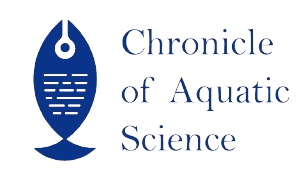| File | Action |
|---|---|
| Dhara and Das, 2023 | Download |
- 919088951040 call us
- chronicleofaquaticscience@gmail.com Mail us
CoAS_V1IS2_09
Review
Fish Culture in “Wish Ponds” can be “Banking in Water” for Peri-urban Households
Kishore Dhara and Uday Narayan Das
Abstract
Fish farming in “Wish Pond” system is a new concept of integrated aquaculture which is not only innovative but also beneficial one especially among the poor farmers in the rural & peri-urban areas. Aquaculture is gaining importance to compensate for the declining fish production from the capture source. “Wish Pond” aquaculture system can be done either integration with aquaponic system or without aquaponics in backyard of a household in rural or peri-urban area & can play important role in food & nutritional security in terms of protein requirement of the family besides income generation. This study focuses on the advantages & drawbacks of aquaponic system compared to solitary wish-pond system in terms of water quality & thereby fish production.
Keywords
Wish Pond, Aquaponics, Backyard aquaculture, Pond Preparation, Vegetable planting
References
Abbo, D. (2020). Inoculating fish sludge from aquaponics with microbes to enhance mineralisation of phosphorus. Master’s Dissertation submitted to Ghent University in partial fulfilment of the requirements for the degree of Master of Science in Aquaculture, pp 45.
Ahmed, M. and Lorica, M.H. (2002). Improving developing country food security through aquaculture development — lessons from Asia. Food Policy 27 (1652): 125– 141.
Allison, E. (2011). Aquaculture, fisheries,poverty and food security. TAD/FI (2011)2. Consultant’s report for the Trade and Agriculture Directorate. Paris: Organization for Economic Co-operation and Development.
Argo, B. (2004). Understanding pH management and plant nutrition. Journal of the International Phalaenopsis Alliance, 3(4):1- 5.
Baganz, G.F.M,Junge, R., Portella, M.C., Simon, G., Keesman, K.J., Baganz, D., Staaks, G., Shaw, C., Lohrberg, F. and Kloas, W. (2021). The aquaponic principle-It is all about coupling. Reviews in Aquaculture, 14: 252–264.
Bailey, D.S. and Ferrarezi, R.S. (2017) Valuation of vegetable crops produced in the UVI Commercial Aquaponic System. Aquac Reports 7:77–82.
Belton, B., Ahmed, N., Murshed-e-Jahan, K. (2014). Aquaculture, employment, poverty, food security and well-being in Bangladesh: A comparative study. In: Program Report: AAS-2014-39. CGIAR Research Program on Aquatic Agricultural Systems, Penang, Malaysia.
Belton, B., Haque, M. Mafujul, Little, David, (2012). Does size matter? Reassessing the relationship between aquaculture and poverty in Bangladesh. J. Dev. Stud., 1–19 First article.
Belton, B., Karim, M., Thilsted, S., Murshed-EJahan, K., Collis, W., Phillips, M. (2011). Review of Aquaculture and Fish Consumption in Bangladesh. Working Papers.
Bene, C. (2009). Fish as the ‘bank in the water’ – evidence from chronic poor communitiesin Congo. Food Policy, 34:108–118.
Boyd, C.E. (1998). Water Quality for Pond Aquaculture. International Center for Aquaculture and Aquatic Environments, Alabama Agricultural Experiment Station, Auburn University, Alabama, Research and Development, pp43.
De Janvry, A., Sadoulet, E. (2002). World poverty and the role of agricultural technology: Direct and indirect effects. J. Dev. Stud. 38 (4):1–26.
De Silva, S.S. and Davy, F. (2010). Success stories in Asian aquaculture. In: De Silva, S.S., Davy,F.B. (Eds.), NACA. Springer Netherlands, Dordrecht.
Dauda, A.B., Ajadi, A., Tola-Fabunmi, A.S. and Akinwole, A.O. (2019) Waste production in aquaculture: Sources, components and managements in different culture systems. Aquac. Fish. 4:81–88.
Edward, A, Ladu, B.M.B. and Elihu, A. (2010). Growth, survival and production economics of Clarias gariepinus fingerlings at different stocking densities in concrete tanks. Afr. J. Gen. Aquac. 6:59.
Edwards, P. (1999). Aquaculture and poverty: Past, present and future prospects of impact. In: A Discussion Paper prepared for the Fifth Fisheries Development Donor Consultation. FAO, Rome, Italy.
Edwards, P., Demaine, H. (1997). Rural Aquaculture: Overview & Framework for Country Reviews. RAP Publication No. 1997/36. RAP/FAO, Bangkok.
Endut, A., Jusoh, N., Ali, W.B., Wan, N. (2011). Nutrient removal from aquaculture wastewater by vegetable production in aquaponics recirculation system. Desalination and Water Treatment, 32(1- 3):422-430.
Ghosh, A., Mahapatra, B.K. and Datta, N. C. (2003). Ornamental fish farming successful small scale aqua business in India, Aquaculture Asia, VIII (3): 14-16.
Helgeson, J.F., Dietz, S., HochrainerStigler, S. (2013). Vulnerability to weather disasters: The choice of coping strategies in ruralUganda. Ecol. Soc. 18 (2).
Hossain, Md., R., Aktaruzzaman, Md., Rahman, Md., T. and Salam, Md., A. (2022) Diversity and distribution of plankton community and physico-chemical parameters in wishpond, wishpond-aquaponics system and traditional fish pond, Asian Australas. J. Biosci. Biotechnol., 7 (1), 13-22 (https://doi.org/10.3329/aajbb.v7i1.59385).
Hossain, M.R., Rahman, M.T. and Salam, M.A. (2020). Comparative assessment of biomass production in wish pond and wish pond aquaponics system, J. Agric. Food Environ. 1(3): 24-32.
Hossain, M.I., Alam, M.M., Alam, M., Kamal, B.M.M. and Galib, S.M. (2013). Investigation of phytoplankton and physicochemical parameters in nursery, growout and broodstock ponds. Journal of Scientific Research, 5: 555-571.
Islam, M.S., Chowdhury, M.T.H., Rahman, M.M., Hossain, M.A. (2004). Urban and peri-urban aquaculture as an immediate source of food fish: Perspectives of Dhaka City, Bangladesh. Urban Ecosyst. 7 (4), 341–359.
Islam, M.K., Rana, K.M.S., Afrin, R., Zahan, S. and Salam, M.A. (2018). Efficacy of wish pond-aquaponics system in mitigating water pollution and safe food production, Journal of Entomology and Zoology Studies, 6(2): 405-410.
- Published online
- 31st July, 2023
How to Cite the Article
Dhara and Das (2023) Fish Culture in “Wish Ponds” can be “Banking in Water” for Peri-urban Households. Chronicle of Aquatic Science 1(2): 68-81
Copyright
This is an open-access article distributed under the terms of the Creative Commons Attribution License (CC BY). The use, distribution or reproduction in other forums is permitted, provided the original author(s) and the copyright owner(s) are credited and that the original publication in this journal is cited, in accordance with accepted academic practice. No use, distribution or reproduction is permitted which does not comply with these terms.

Dhara and Das, 2023


